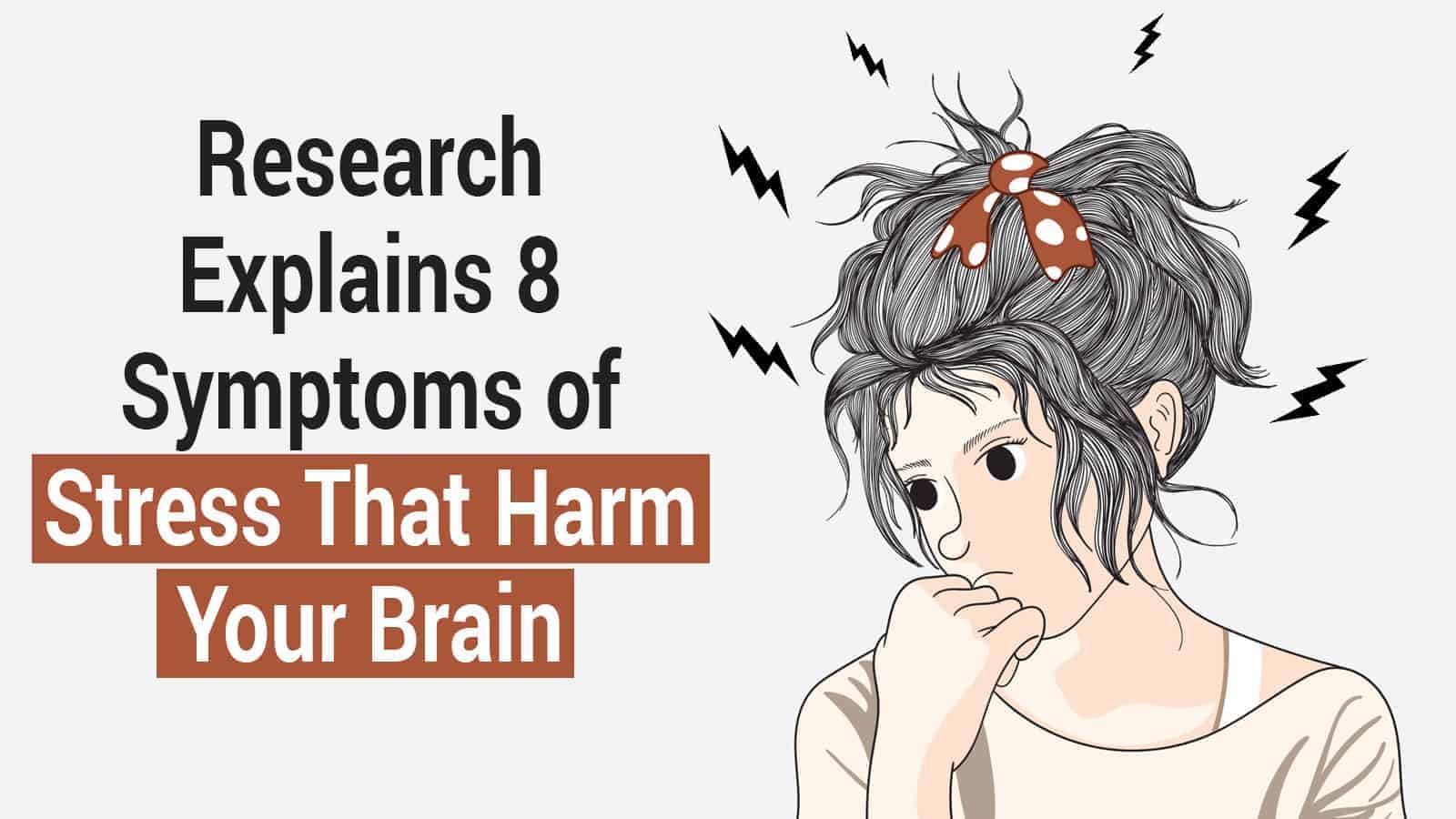We all encounter stress in various forms in today’s busy world. But over time, the symptoms of anxiety can harm our brain and other facets of health. Biologically, stress activates our fight-or-flight response initially designed to protect us against immediate threats. However, in our modern world, we have constant stressors that can impair our judgment and cause lasting damage to our health.
According to a poll by the American Psychiatric Association, anxiety and stress levels have reached an all-time high. Among 1,000 U.S. adults asked about their stress and anxiety symptoms, almost 40% reported increased anxiety levels compared to the same time the previous year.
Another 39% said they felt the same anxiety levels. And only 19% reported feeling less anxious. People reported concerns with safety, health, and finance as their top sources of stress, while politics and personal relationships followed closely behind.
Below, we’ll talk about what all this stress can do to your brain. We will also suggest several ways to combat the stress so you can feel your best.
Here are eight symptoms of stress that harm your brain:
Increased cortisol levels can cause your brain to shrink.
According to a study published in Neurology, adults in their 40s and 50s who had higher cortisol levels showed more brain shrinkage. Researchers collected brain data from 2,231 participants, with 2,018 getting MRIs to measure brain volume. Participants had their cortisol levels measured in the morning before eating breakfast. The team found that people with higher cortisol levels showed worse cognitive functioning and brain structure. Women had more notable differences in brain structure compared to men with elevated cortisol levels.
Cortisol affects the functioning of many parts of the body, including the brain. Because of this, researchers need to learn how long-term stress can affect an otherwise healthy brain, according to lead author Dr. Justin B. Echouffo-Tcheugui, from Harvard Medical School.
“While other studies have examined cortisol and memory, we believe our large, community-based study is the first to explore, in middle-aged people, fasting blood cortisol levels and brain volume, as well as memory and thinking skills.”
Learning and memory get affected as stress disrupts neural pathways.
A study conducted by the University of California at Berkeley scientists analyzed what happened to the hippocampus of adult rats under chronic stress. Under normal conditions, stem cells in the hippocampus only mature into either neuron, or a type of glial cell called an astrocyte. However, scientists put the rats into stressful situations. They found that stem cells matured into a different kind of glial cell called oligodendrocytes.
These cells produce myelin to protect nerve cells. In turn, they produce fewer neurons. This cycle leads to an excess of white matter in the brain. That new white matter disrupts the communication and delicate balance between cells. Ultimately, too much white matter can cause problems with learning and memory.
If you have too much white matter in the brain, scientists believe this could play a massive part in the development of mental disorders such as PTSD, anxiety, and depression.
Harmful emotional states caused by stress could lead to strokes.
Higher stress levels can elevate cholesterol and blood pressure, which can increase the risk of having a stroke. In one study published in the American Heart Association journal Stroke, more than 6,700 adults between the ages of 45 and 84 filled out questionnaires about chronic stress. They answered questions about risk factors such as anger, hostility, and depression over two years. None of the participants had cardiovascular disease at the start of the study.
After 8.5 to 11 years later, 147 people reported having a stroke, and 48 had transient ischemic attacks (TIAs). Compared to people with the lowest psychological scores, scientists found that those who scored the highest were:
- 86 percent more likely to have a stroke or TIA if they had depression.
- 59 percent more likely to have a stroke or TIA if they had chronic stress.
- More than twice as likely to have a stroke or TIA if they had hostility.
- Anger didn’t significantly raise their risk.
“There’s such a focus on traditional risk factors—cholesterol levels, blood pressure, smoking, and so forth—and those are all very important, but studies like this one show that psychological characteristics are equally important,” lead study author Susan Everson-Rose, Ph.D., MPH, said in the statement.
Increased risk of depression due to an imbalance of brain chemicals.
Among the symptoms of stress, depression may present the most considerable risk in the long-term, as untreated depression can lead to suicide.
While some studies like the one above show that depression can lead to stress, scientists from the National Institute of Mental Health found that stress may pull the trigger first. In mice studies, the ones put under extreme pressure showed less resilience to stress and developed depression-like symptoms. Scientists believe inflammation in the brain, and an imbalance of serotonin and dopamine may cause depression.
Fatigue due to stress can lead to neglect of responsibilities.
Being under constant stress can drain your energy reserves and turn a healthy brain into a disorganized, frazzled one. Work-related stress, specifically, can cause increased fatigue, especially among women. When we feel exhausted, we can easily let our health, exercise routine, and other responsibilities slip since stress just zaps our energy.
Not to mention, feeling tired due to stress can harm your brain because it inhibits cognitive functioning. If you have symptoms of stress, such as constant exhaustion, allow yourself some self-care time to restore your mind, body, and soul.
Increased occurrence of headaches.
When you feel overly stressed, you probably have a million thoughts going through your head. Keep in mind that stress first happens in the brain, and the body simply responds to it. If you have a lot of negative thoughts due to stress, you might notice an increased occurrence of headaches. Occasional headaches don’t pose much of a threat, but if you start having them daily, you might want to see a doctor.
Insomnia or oversleeping.
If you have racing thoughts while trying to go to sleep, you likely have unaddressed stressors in your daily life. Among the symptoms of stress, most people would say not being able to sleep creates the most disruption in their lives. To have a healthy brain and body, we need the rejuvenation of sleep.
However, chronic stress can sometimes cause the opposite problem of oversleeping. People turn to different things to deal with stress, and sleep can often serve as an escape from responsibilities and challenges. Too much or too little sleep can harm your brain because it upsets the delicate balance of chemicals in your mind, and this imbalance can cause many of the other symptoms on this list.
In our modern world, many people suffer from both chronic stress and insomnia, and some experts have even called the lack of sleep an epidemic. By addressing stressors in your life, you should see improvements in your sleep quality.
More prone to negative thinking and difficulty controlling emotions.
Unfortunately, humans tend to have a negativity bias, which means we focus more on the negatives in life than the positives. This goes back to our survival instincts because we needed to look for threats in order to protect ourselves and our tribe. In our modern world, however, this biological adaptation can do more harm than good. Negative thinking is one of the symptoms of stress that can harm our brain because it affects everything else in our lives.
A negative outlook on life just feeds a vicious cycle, because the more we focus on the negatives, the less control we will feel over ourselves and our environment. A 2013 study by neuroscientists found that even mild levels of stress can lead to difficulty controlling emotions.
In the study, researchers taught participants stress control techniques. However, after participants had to respond to a mildly stressful event – in this case, dunking their hands in icy water – they couldn’t calm themselves down after being shown pictures of snakes and spiders.
“Our results suggest that even mild stress, such as that encountered in daily life, may impair the ability to use cognitive techniques known to control fear and anxiety,” lead author Candace Raio, Ph.D., said in a press release.
 Final thoughts on how symptoms of stress harm your brain
Final thoughts on how symptoms of stress harm your brain
Stress can harm your brain in various ways. It increases your risk of developing a mental illness and having a stroke. Also, it can even cause your brain to shrink and affect your ability to learn effectively. Not to mention, it can lead to fatigue, insomnia, and other chronic problems. However, you can combat stress in the following ways:
- Designating a worry period each day and not allowing yourself to stress at any other time.
- Exercise and eating healthy.
- Creating a healthy brain by practicing relaxation techniques such as meditation and yoga.
- Distance yourself from those who add stress to your life.



















